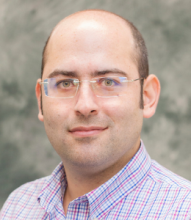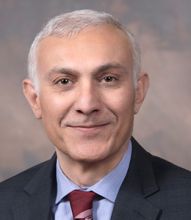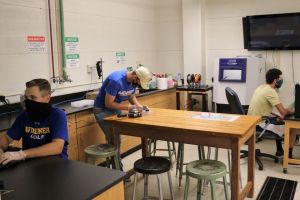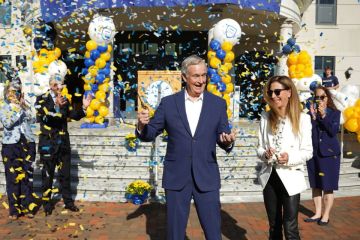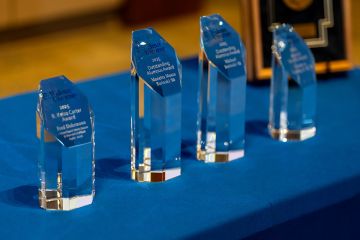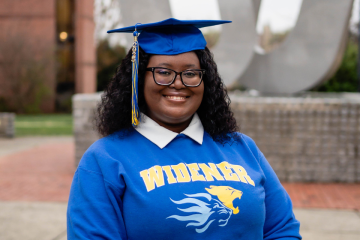Engineering Research Team Receives $50,000 to Advance 3D Printing

A faculty-student research team in the School of Engineering was awarded $50,000 from the Manufacturing PA Innovation Program to identify solutions to one of the leading problems in 3D printing and manufacturing.
Led by mechanical engineering Assistant Professors Babak Eslami and Kamran Fouladi, the state-funded research
aims to diagnose the causes and precursors to 3D printed part failures.
“We are focused on improving the fabrication of flexible plastic parts by determining the optimum environmental conditions for 3D printing,” said Eslami.
The development of 3D printing revolutionized business operations across industries. From product development to prototypes, 3D printing has solidified its role in innovating the manufacturing industry. While the technology introduced cutting-edge strategies and products throughout the business sector, there is still room for improvement.
“If we achieve our goal, then fabricating flexible plastic parts can
be done faster and less-expensive in any setting,” Fouladi said.
Professors Eslami and Fouladi are building on previous research to investigate environment variables in the printing process, such as humidity and temperature, to determine how they impact the process and final product.
The findings will be reached with the assistance of graduate and undergraduate student-researchers, including Dylan Caputo. The mechanical engineering student is a returning member of the research roster who teamed up with Eslami and Fouladi on a previous investigation last year.
His time in the lab has not only put classwork lessons into a real-world application, but also teaches him transferable industry-specific skills.
“In research, there is a lot of problem-solving involved, which is something you typically see in the industry. There are a lot of things that I’ve learned in this project that I’ve been able to adapt to the classroom and that I can apply to my future career,” said Caputo.
The rising senior will present his findings at the Summer Undergraduate Research and Creative Activities (SURCA) symposium in September. Caputo and his teammates kicked off research remotely back in May due to restrictions in light of COVID-19 but recently resumed their investigations back in Kirkbride Hall.
In addition to funding, the state program connects the selected academic research teams with local manufacturers to incorporate industry guidance on the outlined solutions and developments. As part of the grant funding, Widener was paired with the Pennsylvania-based NinjaTek, an additive manufacturing material provider.
Fouladi explains that this industry partnership allows the team “to make an immediate impact on current needs in the field of additive manufacturing” as well as “enhance the thought process for applying the theories and scientific knowledge to solve an actual problem.”
The collaboration delivers rewarding experiential learning for the students as well.
“Students are in contact with product managers and engineers in this fast-growing field, and they are learning the real-life engineering issues that are involved in 3D printing,” said Eslami.
“Additionally, students are learning the skills needed to perform systematic and scientific research in a collaborative team,” Eslami added.
That team effort contributes to knowledge sharing among all of the student-researchers, both at the undergraduate and graduate levels.
“We all have different levels of knowledge in certain areas – I’m stronger in certain aspects than my teammates and they’re stronger than me in other aspects,” Caputo noted.
“We can learn a lot from each other,” Caputo said.

